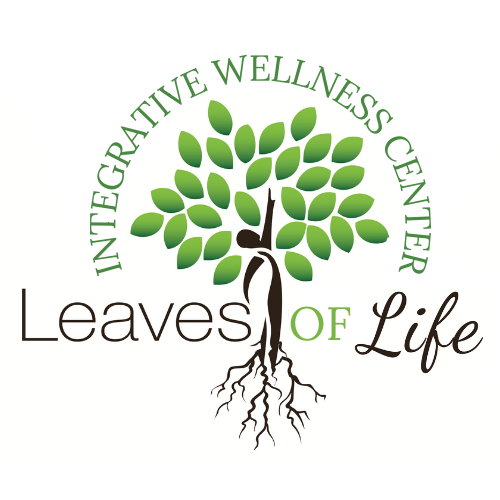Bolstering Immunity by Eating Well
The immune system is an incredibly complex network of cells, organs, and tissues that work together, and what you eat directly impacts your immune system’s ability to fight. Eating whole, unprocessed foods is one of the most significant ways to support a healthy immune system, and the more variety you have in your diet, the better.
Once upon a time, I got sick with some type of infection twice a year, in the spring and fall...allergies that often led to a bad sinus infection, or the flu. Looking back now, I can see the connection to my diet: I was eating artificial and processed foods -- mostly simple carbs and sugar, ie, the Standard American Diet.
When I began learning about the importance of good nutrition, I changed my diet to whole unprocessed foods, and I stopped getting sick. I’m happy to say I haven’t been sick in over five years! I take charge of symptoms right away with immune-boosting nutrition, dramatically decreasing the time it takes to fight off infection.
Below are my top evidence-based tips to help strengthen your immune system through good food:
Sip on bone broth. Chicken soup when you get sick isn’t just an old wives’ tale! It’s great for prevention, too. Real bone broth (not bouillon cubes) helps heal and seal the lining of our intestines which is important since 70-80% of the immune system resides in the GI tract. It may also reduce the overgrowth of harmful microbes while providing tons of bio-available nutrition that is readily and easily absorbed by the body, like protein, collagen, and gut-building glutamine.
Increase natural, whole-food Vitamin C, like rosehip tea, papaya, strawberries, broccoli, brussels sprouts, and sweet or bell peppers (particularly yellow, which have double the amount found in green!). Though there are vitamin C supplements available for purchase, getting all vitamins from our food – if possible – remains best.
Eat more fresh, whole foods and less processed, sugary foods. Vitamin and mineral-rich whole foods provide your body with an array of nutrition needed to build a robust immune system, whereas processed and sugary foods weaken your immune system and lead to health problems. These may include increased inflammation, reduced control of infection, increased rates of cancer, and increased risk for allergic and auto-inflammatory disease.
Prioritize protein. It’s very important to consume enough high-quality protein because it breaks down into amino acids, the building blocks needed for tissue repair, building muscle, and antimicrobial activity. Lysine and cysteine are two notable antiviral amino acids. The antioxidant N-acetyl-L-cysteine (NAC) has been shown to help respiratory conditions and inhibit virus replication and virus-induced pro-inflammatory responses. NAC has also been shown in vitro to limit lung inflammation and damage associated with viral growth. Foods that readily contain these important amino acids include chicken, turkey, eggs, sunflower seeds, red meat, fish, and spirulina.
Eat more nuts and seeds. Nuts and seeds are rich in powerful immune-supporting antioxidants. They contain healthy fats that help to absorb fat-soluble vitamins like Vitamin D, which is incredibly important to immune health. It's easy to add nuts like almonds, pecans, and walnuts to your favorite salads, or as a healthy snack. We suggest avoiding peanuts because of their mold content, and rotating which nuts you're consuming so you don't develop sensitivity. For instance, we're seeing almonds showing up quite frequently now as a sensitivity because they're being over-consumed (almond milk, almond flour, almond butter, almonds)!!
Eat fermented foods for probiotic support. The good bacteria found in fermented foods stand strong like soldiers to crowd out and fight off pathogenic microbes. Fermented foods include raw sauerkraut, kefir, kimchi, low-sugar kombucha, and beet kvass. However, if you have an overgrowth of bacteria like SIBO or other GI issues, fermented foods may exacerbate symptoms. This does not mean they're harmful, they just may not be the right probiotic strains to address that particular imbalance.
Drink more water! Hydration plays a vital role in your health in general and especially your immune health! Drinking water helps your blood carry oxygen to all of your systems. It also allows your kidneys to do their job of removing toxins that would otherwise build up and weaken your immune system. Water also helps to digest and assimilate foods. Another huge perk of hydration is keeping your eyes and mouth moisturized -- this helps repel dust, phthalates, nanoparticles, and other harmful things that can cause infection.
Increase antiviral and antimicrobial foods and herbs -- fresh ginger, oregano, sage, basil, and fennel. Raw crushed garlic is known for it’s potent antiviral and antimicrobial activity. If you can’t eat two garlic cloves straight up, try making a chimichurri, where it’s balanced with EVOO and fresh green herbs like parsley, cilantro, and sage. Chimichurri is delicious as a topper for veggies or minimally processed gluten-free crackers. Another way to incorporate garlic is to chop and mix it into salad dressing (shallots, garlic, EVOO, fresh lemon juice, S&P is one of my go-to's). Coconut Oil is another great addition: it contains lauric acid and monolaurin, both known for their antiviral activity.
I know that’s a lot of information! As a Functional Medicine Certified Health Coach, I’m here to help educate and to work with you to create sustainable change in your day-to-day life. I suggest taking two or three of these and building them up until they slowly become second nature. I used to set alarms to drink more water, but now my body lets me know. So go put a pot of bone broth on, curl up with a cup of rosehip tea, and eat well to stay well!
